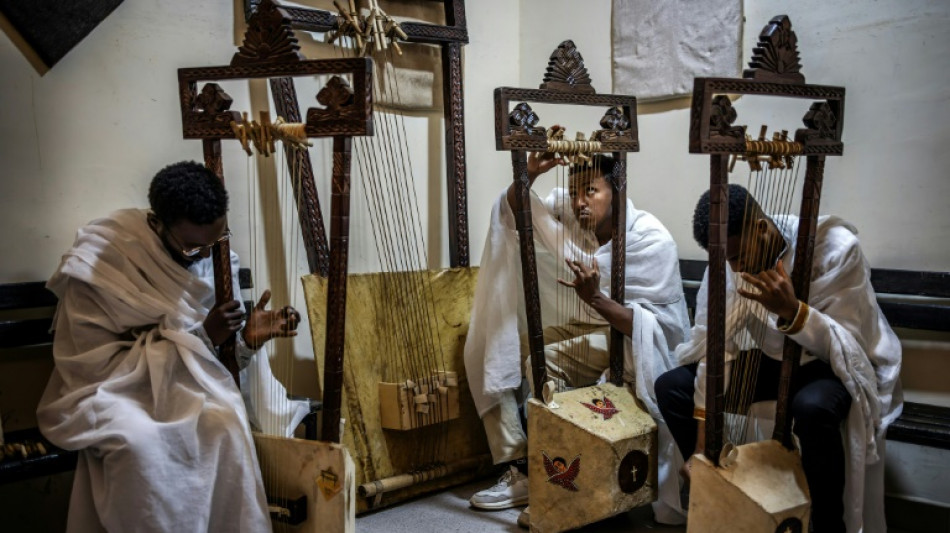
-
 G7 to launch 'alliance' countering China's critical mineral dominance
G7 to launch 'alliance' countering China's critical mineral dominance
-
Wallaby boss Schmidt wary of Ford's 'triple threat'

-
 Swedish hate-crime trial shines light on far-right 'fitness clubs'
Swedish hate-crime trial shines light on far-right 'fitness clubs'
-
Trump call for nuclear tests sows confusion

-
 Chinese EV giant BYD says Q3 profit down 33%
Chinese EV giant BYD says Q3 profit down 33%
-
ECB holds rates steady with eurozone more resilient
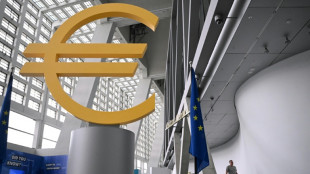
-
 Independent Macau media outlet says it will close by December
Independent Macau media outlet says it will close by December
-
Shares in Jeep-maker Stellantis slump despite rising sales

-
 Shelton beats Rublev to reach Paris Masters last eight
Shelton beats Rublev to reach Paris Masters last eight
-
Trump stirs tensions with surprise order to test nuclear weapons
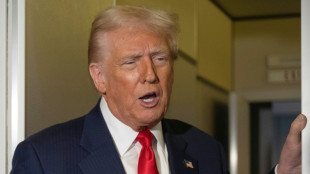
-
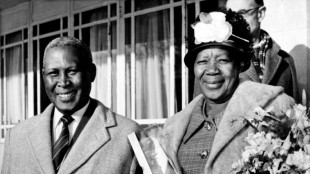 S.Africa court rules ANC leader Luthuli was killed in apartheid 'assault'
S.Africa court rules ANC leader Luthuli was killed in apartheid 'assault'
-
Stocks slide as investors digest Trump-Xi talks, earnings
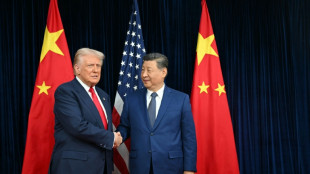
-
 No GDP data released as US shutdown bites
No GDP data released as US shutdown bites
-
PSG's injured Doue to miss Bayern match, out for several weeks

-
 Litchfield ton guides Australia to 338 in World Cup semis
Litchfield ton guides Australia to 338 in World Cup semis
-
S.Africa court rules ANC leader Luthuli killed in apartheid 'assault'
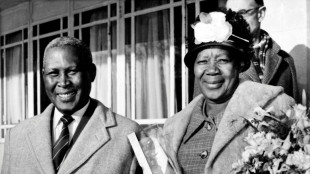
-
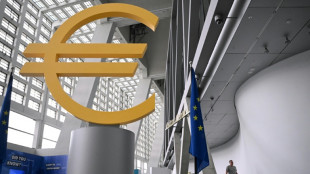 With inflation under control, ECB holds rates steady again
With inflation under control, ECB holds rates steady again
-
Nigerian designer embraces 'clashes' and 'chaos' at Lagos Fashion Week

-
 Nissan says expects $1.8 bn operational loss in 2025-26
Nissan says expects $1.8 bn operational loss in 2025-26
-
Italy court stalls Sicily bridge, triggers PM fury

-
 Marseille midfielder Nadir stable after on-pitch collapse
Marseille midfielder Nadir stable after on-pitch collapse
-
Saudis turned down Messi stint ahead of 2026 World Cup, says official

-
 Novo Nordisk launches bidding war with Pfizer for obesity drugmaker Metsera
Novo Nordisk launches bidding war with Pfizer for obesity drugmaker Metsera
-
Universal says struck first licensing deal for AI music

-
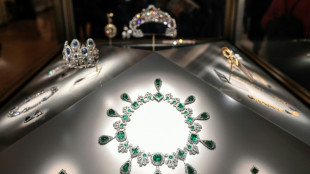 France arrests five new suspects over Louvre heist: prosecutor
France arrests five new suspects over Louvre heist: prosecutor
-
Record Vietnam floods kill 10, turn streets into canals

-
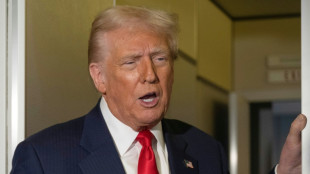 Trump orders US to start nuclear weapons testing
Trump orders US to start nuclear weapons testing
-
'Significant' Xi, Trump talks win cautious optimism in China
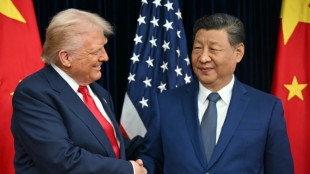
-
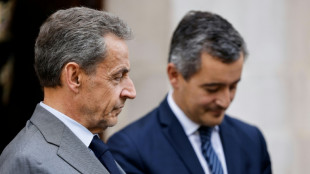 French justice minister visits jailed former president Sarkozy
French justice minister visits jailed former president Sarkozy
-
Eurozone growth beats expectations in third quarter

-
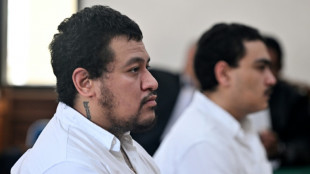 Bali trial begins for 3 accused of Australian's murder
Bali trial begins for 3 accused of Australian's murder
-
Dutch election a photo finish between far-right, centrists

-
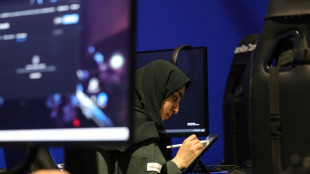 IOC removes Saudi Arabia as host of inaugural Esports Olympics
IOC removes Saudi Arabia as host of inaugural Esports Olympics
-
Russia batters Ukraine energy sites, killing two

-
 Shell's net profit jumps despite lower oil prices
Shell's net profit jumps despite lower oil prices
-
Pakistani security source says Afghanistan talks 'likely' to resume

-
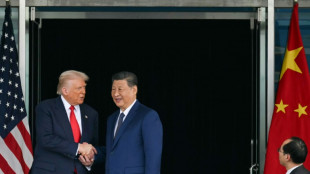 Fentanyl, beans and Ukraine: takeaways from Trump-Xi's 'great meeting'
Fentanyl, beans and Ukraine: takeaways from Trump-Xi's 'great meeting'
-
Branson's Virgin moves closer to launching Eurostar rival
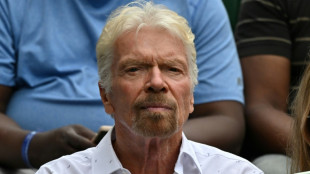
-
 Russia hits Ukraine energy sites, killing one, wounding children
Russia hits Ukraine energy sites, killing one, wounding children
-
Asia markets fluctuate as investors mull Trump-Xi talks
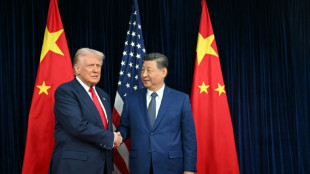
-
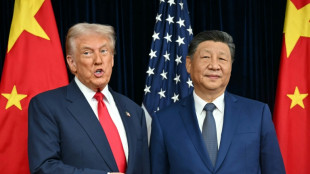 Trump, Xi ease fight on tariffs, rare earths
Trump, Xi ease fight on tariffs, rare earths
-
Volkswagen posts 1-billion-euro loss on tariffs, Porsche woes

-
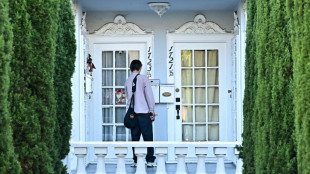 'Fight fire with fire': California mulls skewing electoral map
'Fight fire with fire': California mulls skewing electoral map
-
Fentanyl, beans and Ukraine: Trump hails 'success' in talks with Xi
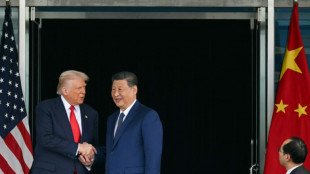
-
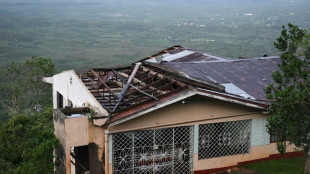 'Nowhere to sleep': Melissa upends life for Jamaicans
'Nowhere to sleep': Melissa upends life for Jamaicans
-
Irish octogenarian enjoys new lease on life making harps
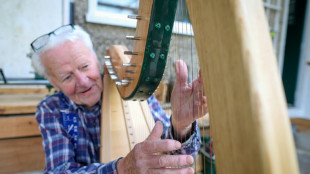
-
 Tanzania blackout after election chaos, deaths feared
Tanzania blackout after election chaos, deaths feared
-
G7 meets on countering China's critical mineral dominance

-
 Trump hails tariff, rare earth deal with Xi
Trump hails tariff, rare earth deal with Xi
-
Court rules against K-pop group NewJeans in label dispute
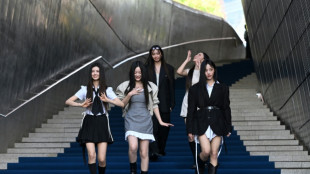

Ethiopia's ancient instrument begena healing souls
Biruktawit Tasew's fingers glide over the strings of the begena, producing a deep, hypnotic sound. Along with six fellow musicians, she breaks into a solemn religious melody, holding their audience spellbound.
One of the country's oldest instruments, the begena was once reserved for the elite -- and effectively banned during the Marxist Derg regime between 1974 and 1991.
But it is experiencing a resurgence among Ethiopia's artistic community.
For the past three years, Biruktawit's group has visited a nursing home in Addis Ababa every Friday to play for its residents.
The begena "is medicine for the soul," said Biruktawit, 23, who has been playing the instrument for about a year.
Legend has it that the instrument was brought over from Israel in the 10th century BC by Menelik I, Ethiopia's first emperor, who received it from King David.
For centuries, the instrument's music has accompanied the prayers and meditations of monks of the Ethiopian Tewahedo Church, which represents about 40 percent of Ethiopia's 120 million people.
That association with religion meant it fell from favour as the country turned towards communism in the 20th century, but it has slowly returned.
Resembling a harp or a large lyre, trapezium-shaped and about a metre tall, it has 10 strings —- traditionally made from sheep's intestines -- that symbolise the Ten Commandments.
It is plucked with the left hand, either bare or with a plectrum, while players wear a netela -- a traditional white cloth -- draped across the chest for men, and in the form of a veil for women.
- Begena therapy -
At Grace Nursing Home for the elderly, the begena brings healing.
Sitting in a small courtyard where residents gather to listen to the soothing melodies, 60-year-old Solomon Daniel Yohanes gently shakes his head in his wheelchair as the tunes fill the air.
Yohanes has been a resident for two years and said the begena has "brought him peace".
"When you're looking for God, you look for him in different ways, and I see the begena as God speaking in his own voice," he said.
Natnael Hailu, a doctor and co-founder of the institution, admits to being "shocked" to see his patients "forget their pain and drift into sleep" to the tune of the instrument.
"It calms their heart rate, lowers their blood pressure and soothes them. More than any other instrument, begena therapy has a real calming effect," he said.
Gene Bukhman, a cardiologist and lecturer at Harvard University who attended one of the performances, told AFP the begena's melodies could have a positive influence on people suffering from chronic illnesses.
- Positive influence -
Ermias Haylay, now 23, started playing the begena when he was 15.
He was not immediately convinced: "I found it smelled bad since some parts come from sheep," he said.
But he soon came to love its "spiritual aspect" and founded a school to train students in the ancient instrument.
It was his idea to play the begena in retirement homes and hospitals -- he even plays during surgeries -- hoping to entertain patients and "bring them a bit of joy".
Before long, he noticed "extraordinary changes" in patients with Alzheimer's, dementia and autism.
"They became very calm," he said.
Demands for the lessons have been booming and he hopes to open schools around the world to help more patients.
L.Wyss--VB



